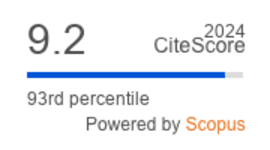Insight of microRNA role in Colorectal Cancer
DOI:
https://doi.org/10.36877/pmmb.a0000083Abstract
The colorectal cancer is among the most predominant cancer in the world including Malaysia. Numerous factors could contribute towards colorectal carcinogenesis and one of the factors is genetic predisposition. Mutations in the V-KiRas2 (Kras) oncogene have been implicated in 30-50% of the colorectal cancer patients and usually lead to poorer prognosis. The challenging ability for the early detection of colorectal cancer still poses an enormous challenge to oncologist as there are limited or no signs or symptoms in the early stage of colorectal cancer. Many studies were conducted hoping to further understand colorectal cancer for a better diagnosis and prognosis. As early detection of colorectal cancer frequently leads to good prognosis. The gold standard for prognosis depends on the stage of the tumor at the time of diagnosis. Lately a group of small, non-coding RNAs termed microRNAs (miRNAs) exhibited capable outcomes in cancer research. Numerous miRNAs were discovered to play a key role in regulatory mechanism in numerous cancers. Differential miRNAs expression among tumors and non-tumor controls are highly valuable in recognizing miRNAs that could have vital role in carcinogenesis. Recently some miRNAs were discovered to play a vital role in colorectal carcinogenesis. Thus, miRNAs have emerged as highly useful tool for scientists to comprehend carcinogenesis better. For example, miR-21 and miR-106a were highly expressed in colorectal cancer. While miRNAs including miR-17-92 cluster, miR-21, miR-34, miR-135 and miR-196a also exhibited high association with colorectal cancer. Therefore, this article aims to provide insight of miRNAs role in colorectal cancer for a better understanding of this disease.Downloads
Published
2020-05-15
How to Cite
Lye, K.-L., Tan, L. T.-H., & Yap, H.-M. (2020). Insight of microRNA role in Colorectal Cancer. Progress In Microbes & Molecular Biology, 3(1). https://doi.org/10.36877/pmmb.a0000083
Issue
Section
Review
License
Author(s) shall retain the copyright of their work and grant the Journal/Publisher right for the first publication with the work simultaneously licensed under:
Creative Commons Attribution-NonCommercial 4.0 International (CC BY-NC 4.0). This license allows for the copying, distribution and transmission of the work, provided the correct attribution of the original creator is stated. Adaptation and remixing are also permitted.

This broad license intends to facilitate free access to, as well as the unrestricted reuse of, original works of all types for non-commercial purposes.
The author(s) permits HH Publisher to publish this article that has not been submitted elsewhere.



.png)

.jpg)
